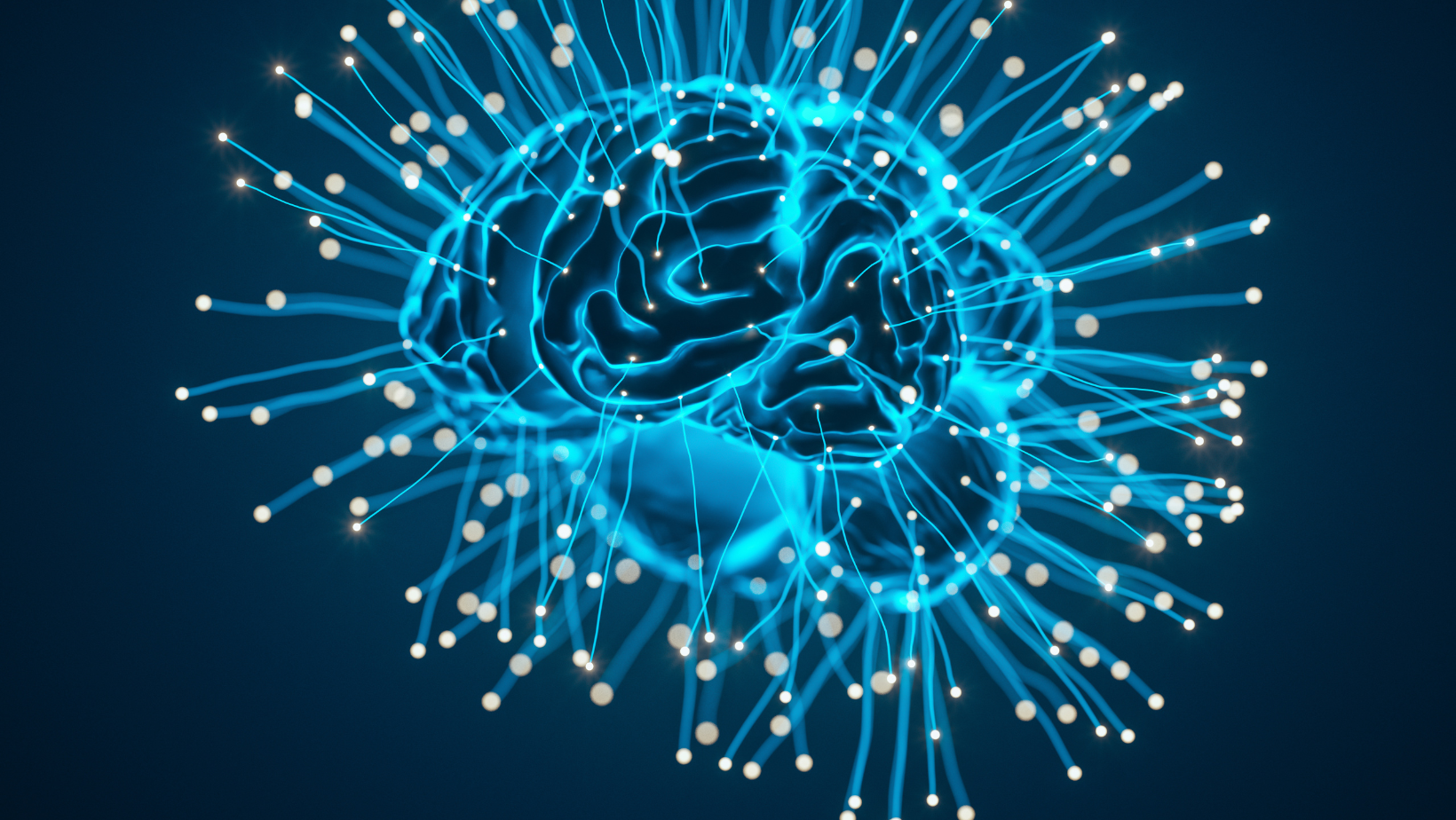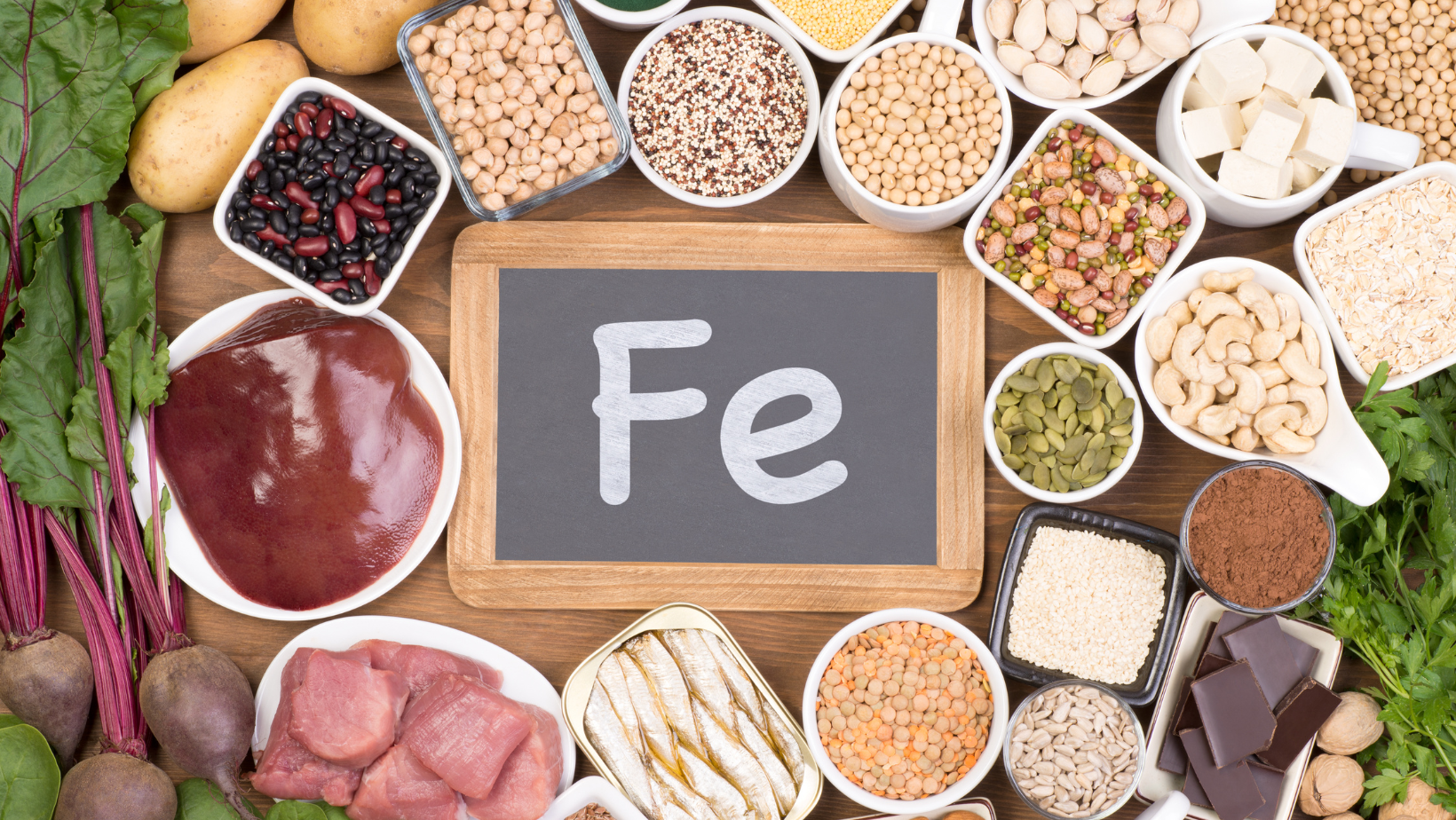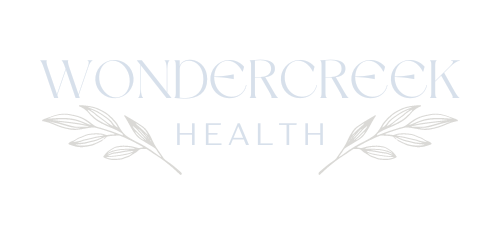Wait, Should I Be Taking Creatine?
Anna Harrelson • March 12, 2025
Why this gym supplement is gaining traction for women’s hormones, energy, mood, and healthy aging.

Creatine is one of the most well-studied, safe, and effective supplements not only for muscle performance—which is what it's most famous for—but also for brain health, metabolism, and perimenopause support. Here's a deep dive into the science behind creatine’s value, particularly relevant for women in midlife:
🔬 What is Creatine?
Creatine is a naturally occurring compound made in the liver, kidneys, and pancreas from three amino acids: arginine, glycine, and methionine. It’s stored in muscles (95%) and the brain (5%) as phosphocreatine, which serves as a rapid energy reserve for cells, especially during times of high demand.
We get creatine from animal products (red meat, fish), but vegetarians and women in general often have lower baseline levels. That's why I supplement daily!
🧠 1. Creatine & Brain Health
The brain uses a tremendous amount of energy, especially during stress, hormonal fluctuation, and cognitive tasks. Creatine helps recycle ATP (adenosine triphosphate)—our primary energy currency—so brain cells can keep firing efficiently.
Key Benefits:
- Improved mental fatigue resistance (especially during sleep deprivation or high-stress)
- Better working memory, attention, and cognitive flexibility
- Neuroprotection: May protect against oxidative stress and support mitochondrial health
- Mood support: Preliminary studies show benefits in depression, especially in women with treatment-resistant depression or PMDD
ADHD & executive function:
Enhances dopamine signaling and helps with focus and emotional regulation
🧪 One 2022 meta-analysis found that creatine improved aspects of short-term memory and reasoning in healthy adults, with women and older adults seeing the most benefit.
💪 2. Muscle Mass, Strength & Longevity
Creatine enhances muscle performance, power, and recovery, especially in aging adults and women in midlife, where we naturally lose muscle mass and strength (sarcopenia risk increases after 40).
Key Benefits:
Increased muscle protein synthesis
Improved response to resistance training
Supports healthy aging and fall prevention
Reduces exercise-induced fatigue and muscle soreness
✅ Important for healthspan: Women with better muscle strength and power have lower risk of metabolic disease, disability, and frailty in later life.
🧬 3. Hormonal & Metabolic Support in Perimenopause
Estrogen plays a role in energy metabolism and mitochondrial function—both of which decline during perimenopause. Creatine helps buffer this by:
- Supporting mitochondrial ATP production
- Improving insulin sensitivity
- Assisting in glucose uptake and lean mass preservation
- Reducing inflammatory markers in some studies
🔥 This makes it particularly helpful for women going through perimenopause, menopause, and those with insulin resistance or metabolic syndrome.
🦴 4. Bone Density
Some studies show creatine, especially when combined with resistance training, may support bone mineral density—critical for women at increased osteoporosis risk.
🩺 5. Safety & Dosing
Creatine is extremely well-studied and safe in recommended doses:
- 3–5 grams per day (no need to load for most people)
- No evidence of kidney damage in healthy individuals
- Safe for long-term use
- Works better when taken consistently (daily), and absorption is enhanced with carbs or protein
Note: Can cause minor water retention in muscles initially, but not dangerous.
🌟 Summary: Who Should Consider Creatine?
✅ Perimenopausal & menopausal women (100% ME!!!)
✅ Women with fatigue, low mood, or brain fog (occasionally, me)
✅ Vegetarians / low red meat eaters (me)
✅ People with ADHD or depression (that's me)
✅ Anyone strength training or focused on aging well (and also, that's me!!!)
WonderCreek Health Blog

You’re not crazy. You’re not lazy. And no, you’re not just "getting older." If you’re dragging through your days, feeling foggy, heavy, or worn out—but your labs are "normal"—you’re not alone. One of the most overlooked causes I find in my practice is suboptimal ferritin levels. Let’s break it down—with science, a little wit, and a whole lot of hope. Your Body: A High-Performance Machine Imagine your body like a beautifully engineered, high-performance car. Hormones are your spark plugs. Micronutrients are your engine oil. Proteins are your gears and pulleys. Without the right balance of all these building blocks, the engine sputters. It doesn’t matter how good the outside looks—if you're low on fuel or missing key fluids, you’re not getting out of the driveway. And iron —stored as ferritin—is a huge part of that fuel system. What Is Ferritin, and Why Should You Care? Ferritin is your body's iron storage protein. It’s like your gas tank. Not your current speed, not your miles per gallon—your actual reserve of fuel. Iron is essential for carrying oxygen to every cell in your body. It's crucial for energy production (ATP) in your mitochondria. It supports your thyroid, neurotransmitter function, hair growth, immune system, and even mood. If you’re low on ferritin, you might still show " normal " hemoglobin or hematocrit—so traditional screening won’t catch it until you’re running on fumes. Symptoms of suboptimal ferritin can include: Fatigue and poor exercise tolerance Brain fog or poor concentration Mood swings or low mood Headaches Hair shedding Shortness of breath with minimal exertion Restless legs or poor sleep Sound familiar? But My Labs Say I'm Normal... Here's the kicker: most lab ranges are designed to flag anemia — not optimal function. You could have a ferritin of 12 and be told " everything looks fine " — but feel absolutely awful. For most women, especially those who are still menstruating or recently stopped, ferritin levels under 40–60 ng/mL can cause symptoms . Many functional and integrative medicine specialists aim for 70–100+ ng/mL to support optimal energy, cognition, and hair health. Low-normal is not optimal. When your engine light is blinking, topping off the tank halfway doesn’t cut it. Why You Might Be Low Menstruation: Every period can deplete iron stores, especially if cycles were heavy. Pregnancy and postpartum: Even years later, many women never rebuild their iron stores. Gut health issues: Poor absorption due to low stomach acid, celiac disease, or IBS. Dietary patterns: Plant-based diets can be low in easily absorbed heme iron. Chronic inflammation: Inflammatory signals can "hide" your iron from circulation. Food First, But Realistic Yes, food matters. Red meat, poultry, seafood, lentils, spinach, and pumpkin seeds all contribute iron. But rebuilding storage? That’s a bigger lift. Think of dietary iron like filling up your gas tank 10–15% at a time. Helpful, but slow if you're starting on empty. Sometimes you need a boost. That’s where targeted supplementation can help—whether it’s gentle oral iron (like iron bisglycinate) or occasional intravenous iron if needed. And by the way, ever wonder why "senior" vitamins have no iron? Because postmenopausal women typically don’t lose blood monthly. We don’t want too much iron. But we also can’t function with too little. Balance is everything. Final Thoughts If you’re feeling run down, foggy, achy, or unlike yourself—it’s not "all in your head." Your body is whispering (or screaming) for better support. And sometimes the missing piece isn’t fancy. It’s basic, foundational, and fixable. Ferritin matters. Iron matters. You matter. At Wondercreek Health, I believe in digging deeper, connecting the dots, and helping you rebuild the strong, steady foundation your body deserves. Because you weren’t designed to run on empty. Iron-Rich Foods to Boost Your Levels Beef, lamb, liver (heme iron is best absorbed) Dark poultry (chicken thighs, turkey) Shellfish (clams, oysters, mussels) Lentils and chickpeas Spinach and swiss chard Pumpkin seeds and cashews Fortified cereals and oatmeal Tofu and tempeh Tip: Pair iron-rich foods with vitamin C (like bell peppers, oranges, or strawberries) to boost absorption! Ferritin Target Chart Ferritin Level What It Means <15 ng/mL Severe deficiency 15–40 ng/mL Low stores (symptoms likely) 40–60 ng/mL Borderline (may still have symptoms) 70–100+ ng/mL Optimal for energy, cognition, hair health Individual needs vary—always interpret ferritin in the context of your full health picture! When to Suspect Low Iron Feeling tired despite good sleep Exercise feels harder than it used to Brain fog or poor memory Unexplained hair thinning Pale skin or brittle nails Frequent headaches Restless legs or poor sleep Shortness of breath climbing stairs If you’re nodding along to several of these, it’s worth a closer look at your ferritin levels.

Let’s start with this: there is nothing shameful or trivial about wanting a healthy sex life. If you're in your 30s, 40s, 50s, or beyond and wondering where your libido went, why sex feels different (or uncomfortable), or why no one ever warned you about vaginal dryness, you’re not alone. And you’re not imagining it. At Wondercreek Health, I talk to people every week who feel confused, dismissed, or ashamed about the sexual changes happening in their bodies. Many are thriving in every other area of life—careers, caregiving, health—but when it comes to intimacy, they feel stuck or unseen. So let’s say this together: sexual health is part of whole-person health. And pleasure is not optional . It’s a reflection of nervous system safety, hormonal balance, connection, and self-awareness. It belongs to you. What Happens to Sexual Health in Midlife and Beyond? Hormonal shifts during perimenopause and menopause can affect every part of your sexual experience. But so can chronic stress, birth control, antidepressants, trauma, and the weight of daily responsibilities. This is never just one thing. Common symptoms include: Vaginal dryness, burning, or itching (genitourinary syndrome of menopause, or GSM) Pain with sex (dyspareunia) Loss of libido or arousal Less intense or harder-to-reach orgasms Urinary urgency or UTIs Pelvic floor tension or dysfunction These changes aren’t "just in your head" and they’re not a moral failure. They reflect real shifts in tissue, blood flow, hormones, and brain chemistry. Sex Isn’t Just for Someone Else’s Benefit Let’s say the quiet part out loud: many of us were raised to believe that sex was about someone else's pleasure. That we should be desirable, responsive, available—regardless of how we felt. That conditioning runs deep. But sex isn’t about performance. It’s about connection, intimacy, and pleasure—for you. Pleasure is your birthright. Intimacy can be tender, playful, spiritual, or wild— but it should never feel like pressure. Your desire may look different than someone else's, and that’s okay. This is true whether your partner is male, female, nonbinary, or you're navigating intimacy solo. There is no one-size-fits-all experience. Why Your Desire Might Feel "Off" Sexual changes can happen at any age. Oral contraceptives (OCPs) can suppress libido by lowering free testosterone. SSRIs and other antidepressants are well known to impact arousal and orgasm. Perimenopause often starts in the mid-30s, long before you notice hot flashes. Chronic stress and the mental load of caregiving, multitasking, and decision fatigue can leave no room for desire. Because here’s the reality: desire doesn’t live in your genitals. It starts in your brain . And when your brain is overloaded with to-dos, responsibilities, or unspoken resentment, it’s nearly impossible to shift into a space of curiosity, connection, and arousal. Unwinding the mind can be hard. For some of us, it means learning to use tools like mindfulness, breathwork, somatic practices, therapy, or just having space and time away from the demands of the world. Creating room for desire isn’t selfish. It’s a form of self-trust and reclamation. The Good News: This Is Treatable Sexual health doesn’t have to decline just because estrogen does. There are safe, effective, empowering ways to reconnect with your body and reclaim your pleasure. 1. Local vaginal estrogen (or DHEA or testosterone): Restores tissue health, lubrication, and blood flow Improves comfort, arousal, and pelvic health Safe for most people, even those with a history of breast cancer (with appropriate guidance) 2. Systemic hormone therapy: Can improve libido, mood, sleep, and confidence Testosterone therapy (when indicated) can support arousal and orgasm 3. Pelvic floor physical therapy: Addresses pain, tension, and coordination issues Supports better sensation and comfort 4. Nervous system regulation: Practices like breathwork, somatic therapy, or trauma-informed care help shift from "fight or flight" into connection When the nervous system feels safe, desire can return 5. Sex therapy or coaching: Helps explore personal blocks, relationship dynamics, and pleasure mapping Let’s Talk About Desire You might notice you don’t feel spontaneous desire anymore— but that doesn’t mean you’re broken . For many people, responsive desire (desire that follows arousal) becomes the norm in midlife. And it’s perfectly valid. Touch, connection, and intimacy may need more warming up. But your ability to experience pleasure is still intact—and it can grow deeper, richer, and more grounded as you reconnect with your body on your own terms. Final Thoughts You don’t need to be fixed. You deserve to be heard. You deserve to feel good in your body. Sexual health is not about keeping up with anyone else’s timeline or expectations. It’s about reclaiming what intimacy and connection mean to you in this season of life. At Wondercreek Health, I’m here to help you connect the dots, reduce shame, and support you with science-backed, judgment-free options that honor your experience. Because this is not the end of your sexual story. It might just be the beginning of the most powerful chapter yet.

